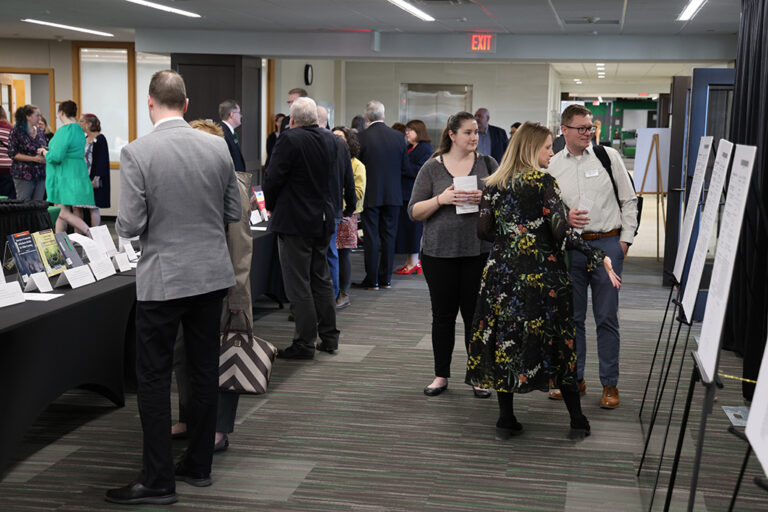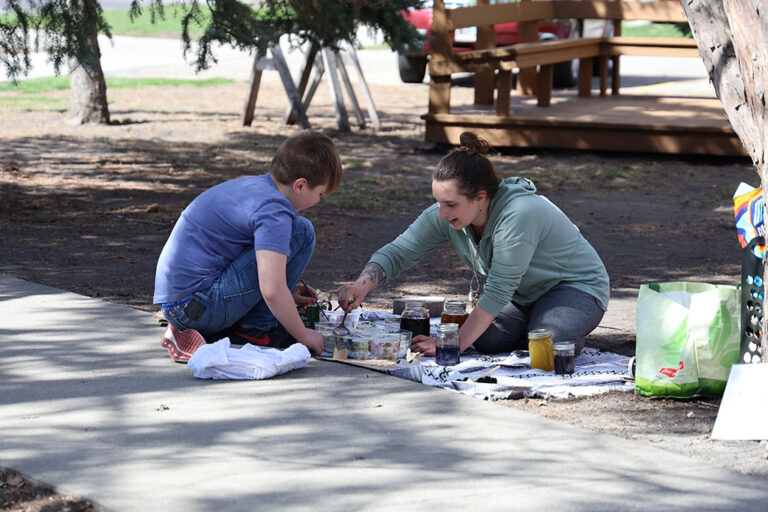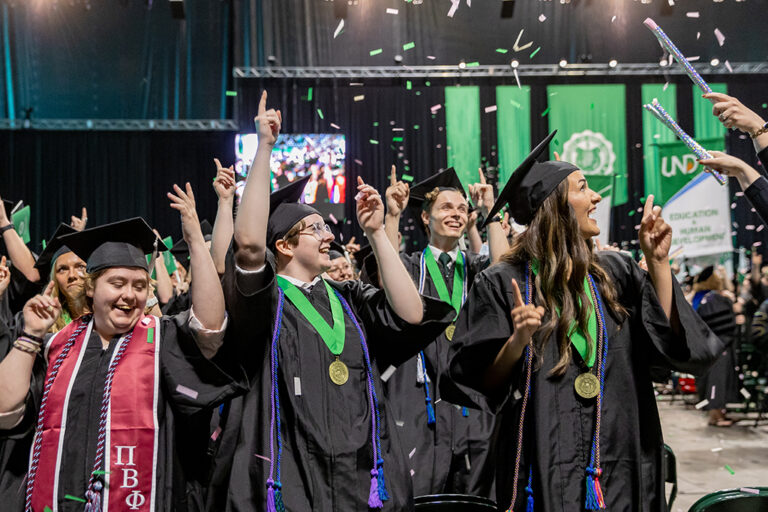Opening minds to OER
UND estimates it’s saved students as much as $1.6M in textbook expenses through Open Education Resources initiative; summit set for Thursday

Stephanie Walker is a self-proclaimed shy person.
But get the University of North Dakota Dean of Libraries & Information Services talking about open educational resources (OER), and the reticence falls away. It’s an initiative she’s passionate about, and it’s a part of her job to spread that zeal throughout higher education.
So what are OER? Walker describes them as resources used for teaching that the user does not have to pay for. These resources can come in the form of faculty-produced textbooks, online journals, digital art collections and more.
“There are a lot of places out there — libraries, universities, museums — that have created digital resources,” Walker said. “It’s not that they are free in that nobody spent time or effort on creating them. It’s that they’re free to the end user, mostly our students.”
Summit focus
OER will be the subject of a North Dakota University System (NDUS) summit this week at the UND School of Medicine & Health Sciences.
The 2016 Open Education Resources Summit, set for Thursday, Oct. 27, includes keynote speaker Nicole Allen, the director of Open Education for the Scholarly Publishing and Academic Resources Coalition (SPARC). Attendees will also hear from a panel of UND faculty and students who are using OER and see a showcase of UND’s OER resources and services.
“We are so proud and honored to host this system-wide event,” said UND Vice President for Academic Affairs and Provost Thomas DiLorenzo.

Summit registration runs through the day of the event. To see a full schedule or to register for the event, click here. Other featured guests will include District 27 Rep. Thomas Beadle, who played a key role in securing grant money for spreading OER across North Dakota.
“It will be great to see one of the legislators who voted for this funding see it have such a universally positive outcome. By voting to supply that $100,000 to NDUS, they made such a big impact,” Walker said.
The summit is sponsored by the Open Education Resources Committee, UND Office of the Provost, NDUS OER Initiative, Chester Fritz Library, UND Center for Instructional & Learning Technologies, and UND Office of Extended Learning.
Big savings
When Walker took on her role last year, one of her first priorities was assembling an OER working group to jump-start the initiative at UND and keep money in students’ wallets.
“You’re a new UND freshman. You go to the bookstore and you discover that your calculus textbook is over $300,” Walker said. “There have been a lot of articles in the paper about how many times more than the cost of living textbook costs have risen, and that’s hard on students.”
UND is now one of only three campuses in the state that have adopted OER for coursework. Even though the resources are free for students, the process of preparing faculty and their classrooms for this new style of teaching took time and money. The state legislature awarded the North Dakota University System (NDUS) $100,000 to offer schools grants for incorporating OER into their classrooms. UND received $10,000, along with additional internal support from UND’s College of Arts & Sciences, Office of Extended Learning and Provost’s Office. Walker’s team took $26,000 in funding and turned it into OER experiences for a number of entry-level classes in math, political science, aviation meteorology and psychology.
“The Registrar’s Office got information on how many people would have signed up for the classes,” Walker said. “They figured somewhere between $1-1.6 million were saved with that $26,000. So that was a really good return on investment.”
Faculty support
Eleven UND staff and faculty members received specialized OER training at a Valley City State University summit last fall. They spent time this summer developing their own OER and finding ways to incorporate it into their courses. One of the classes seeing the fruits of that labor is UND Vice President for Academic Affairs and Provost Thomas DiLorenzo’s Psychology 111 class. He says the opinion of his students is evident.
“They love it,” DiLorenzo said. “They can use high-quality, easily accessible and up-to-date materials all at no or low cost. And it’s working really well — seamless to me.”
Student Body President Brandon Beyer has heard the same from students, but adds that more faculty support is needed.
“I really just want our professors to sit down and compare OER to the textbooks that they’re currently using,” Beyer said. “I think a majority of them will find these OER to be at least comparable (if not better) to what they are currently using in their courses.”
“Initially, faculty had been somewhat resistant because there were concerns about quality,” Walker explained. “But when you go to the right sites and it’s been reviewed by other universities, they realize maybe it’s worth a look.”
Right now, UND’s OER classes are limited to more introductory courses, but Walker says her committee has applied for more grants to keep it moving forward. As funding grows, she hopes to extend the availability into upper-level classes and strategic areas like unmanned aircraft systems.
“I see OER as inevitable in all of education,” Beyer said, “and we currently have the opportunity to be at the forefront of the entire movement.”


